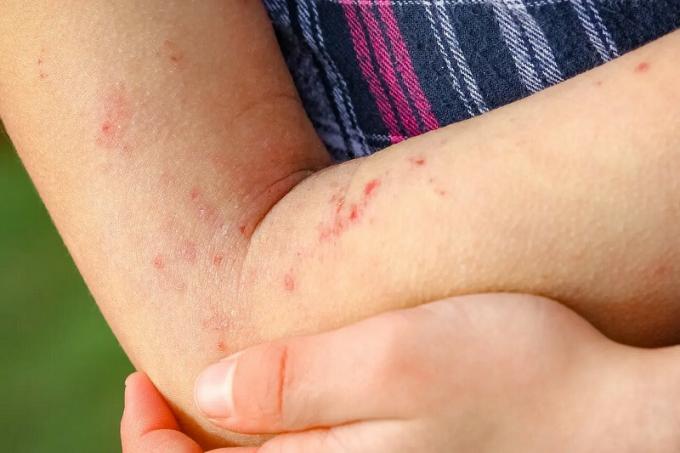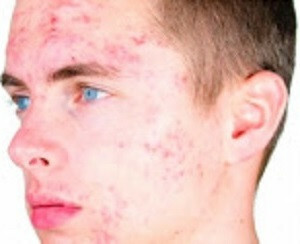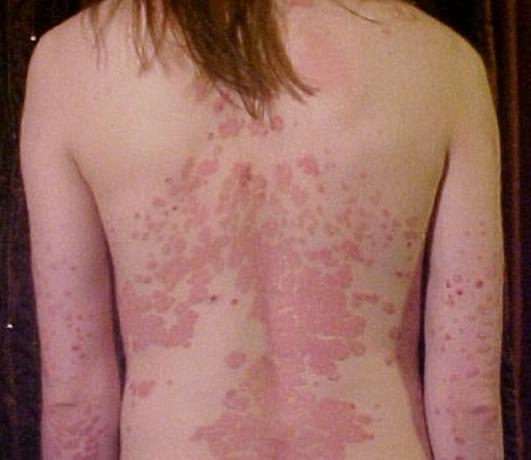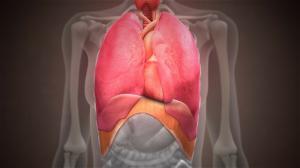What are the effects of stress on the skin?
Prolonged stress often causes a number of negative conditions for those who suffer from it, such as trouble sleeping, fatigue, changes in mood, concentration problems and can even cause some conditions in the skin.
Among the effects of stress on the skin, we can find various signs such as the appearance of premature wrinkles, sagging skin, the appearance of skin blemishes, the appearance of itching, etc., and certain dermatological diseases can also develop due to stress, among other reasons, some of them being psoriasis, some types of dermatitis, etc.
In this article we will talk about the effects of stress on the skin and we will also explain some advice in order to take a series of measures that could help alleviate, as far as possible, the conditions caused by stress; It is recommended that professional help be sought in these cases.
- Related article: "Types of stress and their triggers"
Main effects of stress on the skin
Prolonged stress can cause the immune system to suffer serious alterations
, so it will not work properly, so the pH of the skin could be altered, causing a wide variety of dermatological signs.The most common signs that show the effects of stress on the skin are the ones that we are going to list below, and some or even several of them may appear at the same time:
flaccid skin
A loss of elasticity in the skin.
premature wrinkles
Dark spots on the skin, blackheads or even pimples.
Apparently dull skin; with a flat or gray appearance, without shine.
A dehydrated, dry skin or it may show more oil in some cases.
Rough or even bumpy skin to the touch.
Itching may appear, which would cause tingling or irritation and the desire to scratch in that area.
Skin that turns red due to a simple scratch in an area where itching appears.
Dark circles and bags when stress is prolonged and causes insomnia problems.
Condition on the scalp, thus causing greater hair loss.
Peeling of the skin.
You may be interested: "The 24 pathologies of the skin: characteristics and how to recognize them"
Dermatological diseases that can occur with stress problems
In addition to the signs that can occur at the dermatological level due to being suffering from high levels of stress for a long time, some dermatological diseases could also be triggered like the ones we are going to discuss below.
1. excoriations
One of the effects of stress on the skin are the excoriations that develop when a person, in stressful moments and situations, have a tendency to compulsively scratch the skin in some areas of the body, causing itching, thus causing irritation and tingling in that area, so that this area will itch more and You will feel an even greater desire to scratch, thus generating a vicious circle that could last for quite some time. dragged on.

- Related article: "Psychosomatic disorders: causes, symptoms and treatment"
2. Seborrheic dermatitis
Another of the effects of stress on the skin could be the development of seborrheic dermatitis, being a dermatological disease that tends to appear at times when a person suffers from high levels of stress and anxiety (p. g., when a student is in exam time, when a person is suffering from a greater work overload than usual, etc.).

3. Atopic dermatitis
Atopic dermatitis has also been found in various patients who have been suffering from prolonged stress, so it would be another of the effects of stress on the skin. This type of dermatitis tends to develop due to various factors such as dehydration, infections, excessive sweating in certain areas, due to an irritant that has come into contact with the skin, due to factors environmental... However, There is also a relationship between the appearance of this dermatological disease and the suffering of prolonged stress.
In these cases, just as it can happen in the chaos of excoriations, a vicious circle could also occur between the development of itching, that causes itching and scratching, so that it could cause a worsening of the disease and the development of a series of complications of greater gravity.
- Related article: "5 signs of poor mental health that you should not overlook"
4. Acne
Among the effects of stress on the skin we can also find the appearance of acne, which consists of appearance of pimples or pimples on the skin in various areas such as on the face, on the back...
Although acne can develop due to various factors, there is no single cause, but one has been found. close relationship between this dermatological disease and stress, not being a very serious skin condition usually.

5. Psoriasis
Psoriasis can also be found among the effects of stress on the skin and consist of the development of an acceleration of the cell life cycle, so these die before they should, so that on the skin surface they are formed red spots and scales that cause intense itching and could even cause pain.
This dermatological disease tends to be chronic and episodic, so it could subside for a certain time and reappear when the person goes through stages of stress again.

- Related article: "The 4 types of skin (and how to take care of them)"
6. Hair loss
Within this series of effects of stress on the skin that could appear, there is also a possible hair loss in some very specific areas of the scalp, being called in these cases as alopecia arrests. It is a type of autoimmune disease that develops when the immune system mistakenly attacks and destroys healthy hair follicles.
It should be noted that alopecia is related to genetic predisposition, when there is a family history of this condition; however, a very close relationship has also been seen between hair loss that is more aggressive than normal and the fact that you are suffering from prolonged stress; In these cases, this condition is also known as nervous alopecia.
Psychological treatments and techniques against stress
Once we have seen what the effects of stress on the skin are, it is convenient that we know some psychological treatments and techniques that can be used, in combination with the recommendations of a dermatologist, to alleviate the signs produced at the dermatological when someone suffers from prolonged stress, causing various problems, among which can be found some dermatological conditions.
1. Behaviors and recommended habits in the face of stress
When a person experiences any of the possible effects of stress on the skin like the ones just mentioned in this article, The first thing you should do is develop a series of behaviors that allow you to correctly manage stress and take proper care of your skin. If you can't get better, it would be advisable to seek professional help; both from a dermatologist to correctly treat dermatological conditions, and from a psychologist who may help you manage stress and the possible behaviors and thoughts that may affect negatively.
Regarding general recommendations and routines that can help mitigate this kind of skin affections, the stockings that a person who is suffering from any type of dermatological condition caused by stress can start to carry out are the following:
- Eat a healthy diet that is not lacking in essential nutrients and drink enough water to stay hydrated.
- Keep skin hydrated.
- Use creams that can help keep the skin in ideal conditions.
- Exercise regularly; as it is shown to help control stress levels.
- Carrying correct sleep and rest habits (regular rest schedule, sleep hygiene, etc.).
- Do enjoyable activities.
- Set limits, learning to say no when you exceed your own possibilities.
- Practice techniques to manage stress (meditation, Mindfulness exercises, progressive muscle relaxation, etc.).
- Maintain healthy relationships.
- Maintain an active social life.
- Properly manage the workload and not take work home.
- Don't be too self-demanding.
- Acquire the habit of walking and, if possible, make a trip to some natural environment.
- Talk to someone you trust who can provide support in times of stress.
- Seek professional help if necessary.
In addition to all the actions that have been mentioned above, it would be advisable to seek professional help; a dermatologist may be able to help treat skin conditions to control signs, and a psychologist can help manage stress.
2. psychological treatment for stress
There are various psychological treatments to treat stress, and in this sense it is worth highlighting the "therapy focused on the present" (TCP). This psychological therapy can help in a complementary way to the measures recommended by a dermatologist in order to alleviate the effects of stress on the skin and other conditions that could cause. The main objective of this therapy is for the patient to understand how stress has come to harm it at various levels, both in the field of health and in terms of personal experiences (p. g., at work, family, etc.).
This psychological treatment also incorporates a series of techniques such as cognitive restructuring against erroneous thoughts that could be worsening stress levels and also behavioral activation techniques, among others.
Another of the most important objectives is for the patient to acquire the habit of focusing their attention on the here and now, in order to that he can focus on his emotional states so that he can correctly identify and talk about them in therapy, as well as also so that he learns to tolerate stressful states and in this way does not look for escape routes that could worsen the levels of stress.


